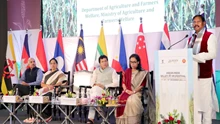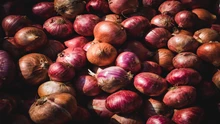
Global crop production is under pressure from ozone depletion and climate change, with implications for potential food security.
When interpreting crop-ozone or crop-temperature relationships, previous studies of ozone and warming impacts on crops usually do not account for the high ozone-temperature association, or the spatial heterogeneity in crop-to-ozone exposure resulting from varietal and environmental variations, contributing to possible biases in their predicted crop losses.
Ozone in the lower layers of the atmosphere reduces maize crop yields and shifts the kinds of chemicals present within the leaves, according to a team of researchers.
Although stratospheric ozone protects us by blocking out the Sun's ultraviolet radiation, tropospheric ozone is a dangerous pollutant, according to the researchers.
"Since high ozone emission concentrations coincide temporally and spatially with crop growth, it's critical to investigate how high ozone concentrations impact crop yields," Wedow added.
As nitrous oxide, which is emitted by factories and automobile tailpipes, is broken down by sunlight and chemically reacts to create ozone, ozone is formed.
The researchers looked at three varieties of maize for the analysis, which was published in the journal 'Plant Direct.' They looked at two inbred lines, B73 and Mo17, as well as the hybrid cross B73 — Mo17.
Surprisingly, they discovered that persistent ozone stress reduced hybrid crop yields by 25%, whereas inbred plants stayed unchanged. In addition, hybrid plants aged quicker than inbred crops.
The chemical composition of the leaves was determined to determine why B73 — Mo17 was affected.










